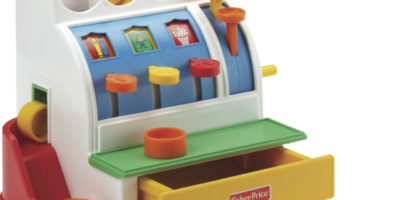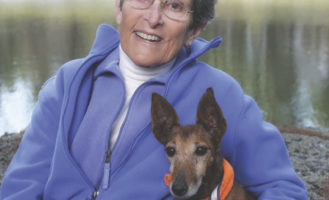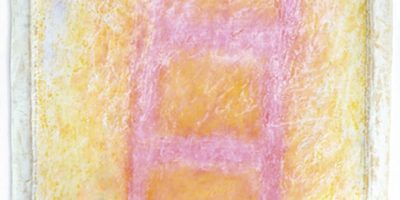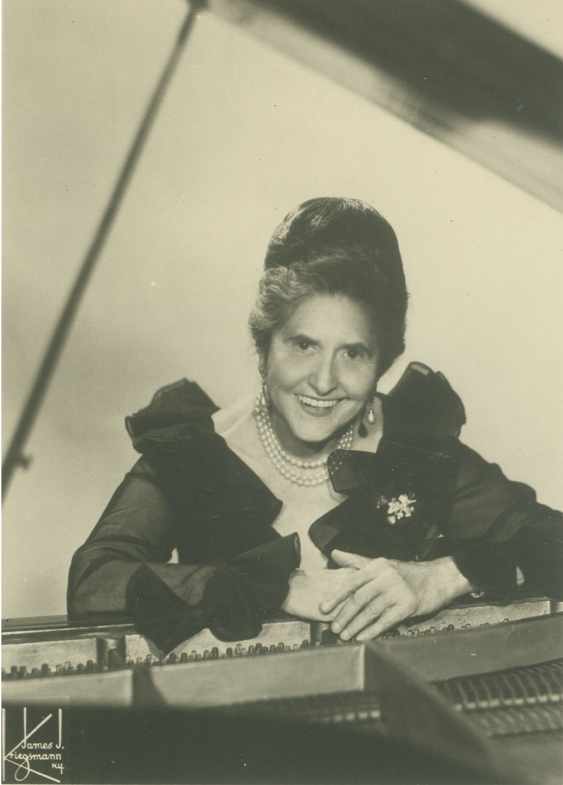
Jewsies, Jewosity & Identity
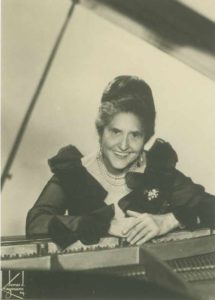 Yom Kippur is that holiest of Jewish Holy Days when Jews atone for their sins. Usually I take the day off from work—arguably a sin in itself, because I’m not sure how Jewish I really am. I wasn’t raised as a Jew. I rarely go to temple. And my attempts to fast usually end at 11:00 a.m. with a cappuccino and biscotti. I didn’t even know I was Jewish until I was well into my 20s, when my mother, Ruth, shared with me the stories of how she had come to learn, also as grown woman, that she was Jewish.
Yom Kippur is that holiest of Jewish Holy Days when Jews atone for their sins. Usually I take the day off from work—arguably a sin in itself, because I’m not sure how Jewish I really am. I wasn’t raised as a Jew. I rarely go to temple. And my attempts to fast usually end at 11:00 a.m. with a cappuccino and biscotti. I didn’t even know I was Jewish until I was well into my 20s, when my mother, Ruth, shared with me the stories of how she had come to learn, also as grown woman, that she was Jewish.
She was having coffee at an outdoor café in Paris with her younger brother, Michael, and a cousin of theirs whom they hadn’t seen in years. No one can remember his name, so I’ll call him “Max.” While they were reminiscing about their war-time experiences, Max dropped a bombshell.
“It must have been so hard for you two during the War—being Jewish and all.” Ruth and Michael were dumbfounded.
“What are you talking about?” Ruth demanded indignantly. “We’re not Jewish!!!”
“Of course you are,” Max responded. “Everyone knows you’re Jewish.” Everyone, apparently, except my mom and uncle.
They stormed back to the Chateau de Saint-Seine, a 17th-century timbered masterpiece in Villepreux, outside Paris, that my grandparents had rented from a cash-strapped nobleman. There Ruth and Michael confronted their father, Dickie, demanding an explanation. Dickie was short for “dictator”—which is how everyone referred affectionately to my grandfather, Otto Mandl.
“Cousin Max says we’re Jewish. Is that true? Why did you never tell us?”
Dickie hesitated for a moment, and then came clean. Sort of.
“Well, children, I am Jewish, but your mother is not. We never told you I was Jewish because we wanted to protect you. Please don’t talk to Lili about this because it will just upset her.”
Lili was my grandmother, Lili Kraus, a world-renowned pianist who, during an uncharacteristic break from her grueling concert schedule, had suffered sunstroke after falling asleep sunbathing, and was in bed with a high fever. Ruth and Michael tiptoed out of the castle and not another word was spoken about their father being Jewish and failing to tell them.
Many years later, long after Dickie had passed away, my mom and Lili (even her family called her by her first name) were returning home to North Carolina after a trip to the Mayo Clinic, where Lili had undergone some tests for the rheumatoid arthritis that would soon end her illustrious career.
Riding in a small commuter plane from Atlanta to Asheville, they were caught in a summer rainstorm and the plane began to pitch violently. My mother and Lili were both convinced
that they were about to crash. As the plane careened from side to side and thunder clapped through the wet sky, Mom reached for Lili’s hand.
“Lili, in case this plane goes down, is there anything you want to tell me? Any deep, dark secret you’ve been carrying around—something that you want to share before we meet our maker?”
My grandmother’s eyes grew wide. “What do mean ‘secret’?” she asked nervously. “What kind of secret?”
“Oh, I don’t know. Maybe an affair you had…an affair with Szymon Goldberg?” Goldberg was an acclaimed Polish-born violinist and conductor with whom Lili had recorded a series of Mozart and Beethoven sonatas in the 1930s. It was rumored that their mutual passion extended to more than just classical music. Lili shook her head.
“No, I never had an affair with Szymon. I loved your father.”
“How about an abortion?” my mom asked. That had been another rumor.
“No, never an abortion,” Lili replied gravely.
Mom tried once more. “Maybe that you’re Jewish?”
Lili was shocked. “How did you know?” she whispered.
The real question was: how did we not know? There had been so many clues. The fact that Lili and Dickie fled Nazi Germany with their children to escape from Hitler in the early 1940’s might have tipped us off. Their names: Kraus and Mandl. Lili was boisterous, irrepressible, insanely talented and beautiful. She looked Jewish, with her wild, luxurious mane of jet black hair, her strong nose and her shimmering dark eyes. She was constantly wracked by guilt, and deeply superstitious. She was obsessed with the number 9, and considered any numbers that added up to 9, or one of its multiples, to be harbingers of good fortune. She hated the Germans with an unbridled passion and refused to buy anything that was made in Germany.
Like Lili, my mother was virulently anti-German. She had been born in Berlin, where Lili happened to be teaching at the time, but she’d always lied about this, instead claiming Vienna as her birthplace.
Starting at the age of 10 or 11, I began to chide my mother for her deception and her rather skewed historical perspective. I had seen The Sound of Music, after all, and so knew a little bit about history myself.
“Mom, I get that you hate the Germans, but let’s face it: Hitler was half-Austrian and the Austrians pretty much rolled out the red carpet for him. If you’re going to lie about where you were born, at least pick a city that put up a good fight. Like London.” Mom did not like hearing this from me.
“That is absolutely not true, Zazi. The Austrians hated Hitler too. They just had the good sense to bow to the inevitable.”
And then, since she was the one who actually took me to see The Sound of Music, she would triumphantly conclude with, “What about Captain von Trapp? He trekked over the Alps with his family, risking all of their lives, rather than enlist in the Royal Navy!”
“I hate to argue, Mom,” (this was a lie: in fact I loved to argue), “but I think Herr Zeller and Rolf were far more representative of the Austrian mind-set at that time.” It was no use. I was never able to convince my mom to tell the truth about her birthplace. Uncle Michael, though, plainly more tormented by this fiction than either my mother or me, eventually persuaded her. But “Berlin” still sticks in her craw whenever she’s asked the question.
Growing up in Appalachia, I didn’t know many Jews. It is sad that my grandparents were apparently ashamed of being Jewish, but, as I later came to learn, hiding one’s Jewish heritage was not altogether uncommon as fascism took root between the two World Wars.
With Central and Eastern Europe engulfed in anti-Semitism, and Lili’s piano career beginning to take off, Dickie feared that their family might be targeted unless they concealed their Jewish identity. While Lili denied being Jewish, she always claimed to be very fond of Jews, affectionately referring to them as “the Jewsies”—a moniker whose playfulness concealed a disturbing condescension that was not apparent to me as a child. She was also full of pithy Jewish aphorisms. When I would complain to her about my big nose, for example, she would slowly nod her head and proclaim sagely: “As the Jewsies always say, Zazi, ‘big nose, big character’.”
These pearls of wisdom failed to mollify me. I did not want a big character any more than I wanted a big nose. I wanted a nice small nose and a nice small character to go with it, so that I would blend in with everyone else, instead of always feeling like I didn’t belong.
When I got to Swarthmore College, though, I felt, for the first time really, that I did belong. This was largely because I was surrounded by Jews. My roommate and most of my close friends were Jewish, and, to my surprise, they all told me that I seemed Jewish to them, too.
“Are you sure you’re not Jewish?” they would ask me, incredulously. “You look Jewish. You act Jewish. You’re practically the most Jewish person we know. How can you not be Jewish?”
“I’m flattered you think so,” I’d respond, truthfully. “But I was raised as a Christian, and baptized by a Lutheran pastor—Albert Schweitzer, no less—so I’m pretty sure I’m not Jewish.”
It wasn’t until after Lili passed away that my mom recounted to me what Lili had told her in that stormy plane ride to Asheville years earlier. Mom doesn’t know why she didn’t tell me at the time, and I can only surmise.
Perhaps she didn’t realize the impact of Lili’s “confession”—that Lili’s being Jewish made her children and grandchildren Jewish, too, and that maybe this was an important piece of information to share with us. Perhaps she thought that since Lili had only revealed her Jewishness in the belief that they were both going to perish, she owed it to Lili to keep the disclosure in confidence, at least while she was alive.
Or it could be that Mom found the revelation so inconsequential—she had obviously suspected the truth—that she simply forgot about it after the plane landed safely, only to dredge it up years later when we were reminiscing about Lili after her death.
Mom’s revelation had a greater impact on me, however, triggering many questions. Was I now, in my late twenties, supposed to embrace my newfound Jewish identity, and if so, how? Was I Jewish if Judaism had never been part of my life? Did I want it to be part of my life? What did it mean to be Jewish? Was it a religious affiliation, or a cultural one, or an ethnic one, or some or all of those? What if I didn’t want to keep kosher, or observe the Sabbath, or go to temple? Would I be able to continue to use favorite expressions like “for Christ’s sake”? What would happen to my treasured collection of Christmas tree ornaments? If I didn’t embrace Judaism was I guilty of the same Jewish self-hate that had afflicted my mother and grandparents?
These questions took on even more significance after I had children. My husband, who is not Jewish, and in fact abhors organized religion of any kind, did not object to religious education for our children, but he made it clear that this was my project, not his.
With our son, Jeremy, my attempts to instill a grounding in Jewish faith and culture were uneven at best, but after our daughter, Lili, was born—we named her after her great-grandmother—I decided to be more proactive and we joined Sholem, a secular and progressive Jewish group that met weekly in Culver City. I took Lili for a couple of years and she didn’t mind it, although I sometimes felt that the bagels and cream cheese they served were the star attraction for her.
When Lili was small, she inadvertently coined the word “Jewosity” as she was struggling to conjure up “Judaism” during a family discussion about religion. I wish I could tell you that I finally cracked the conundrum of my own Jewosity. But that wouldn’t be true. I’m not sure I’ll find the answers by going to temple, either, although I’ll continue to take the day off on Yom Kippur. Even if it means feeling guilty about it.
I wish that my grandmother Lili were alive today so that I could ask her why she kept her Jewish identity hidden for so long, and at what cost. How painful it must have been for her. She was clearly consumed with guilt and shame. Why else would she have converted to Catholicism shortly before she died? I would hold her knobbly, veiny hands—still muscular from decades of glorious piano-playing—and tell her that it is never too late to come out of the shadows. That dying with a secret is worse than living with one. And indeed, that our Jewosity is worthy of celebration.
Zazi Pope lives in Los Angeles. She is an attorney in the entertainment industry and an occasional writer, artist and temple-goer.

